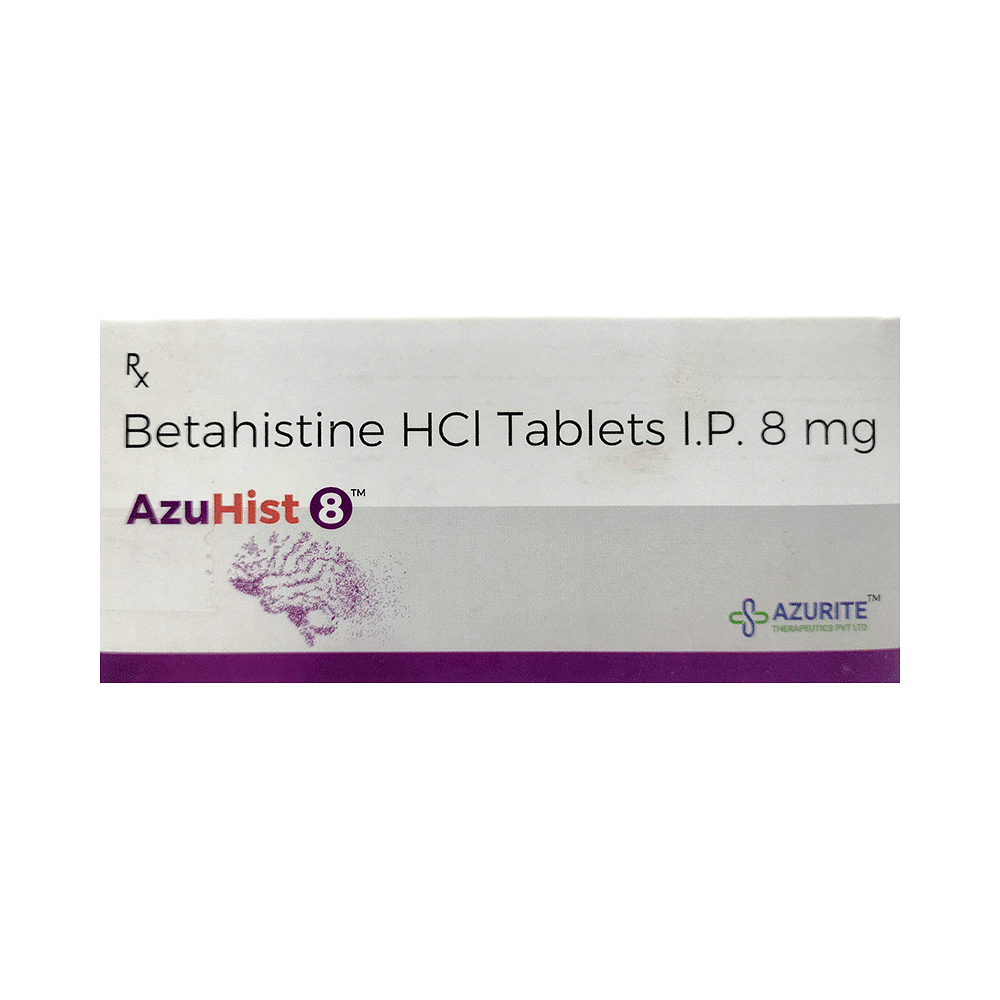
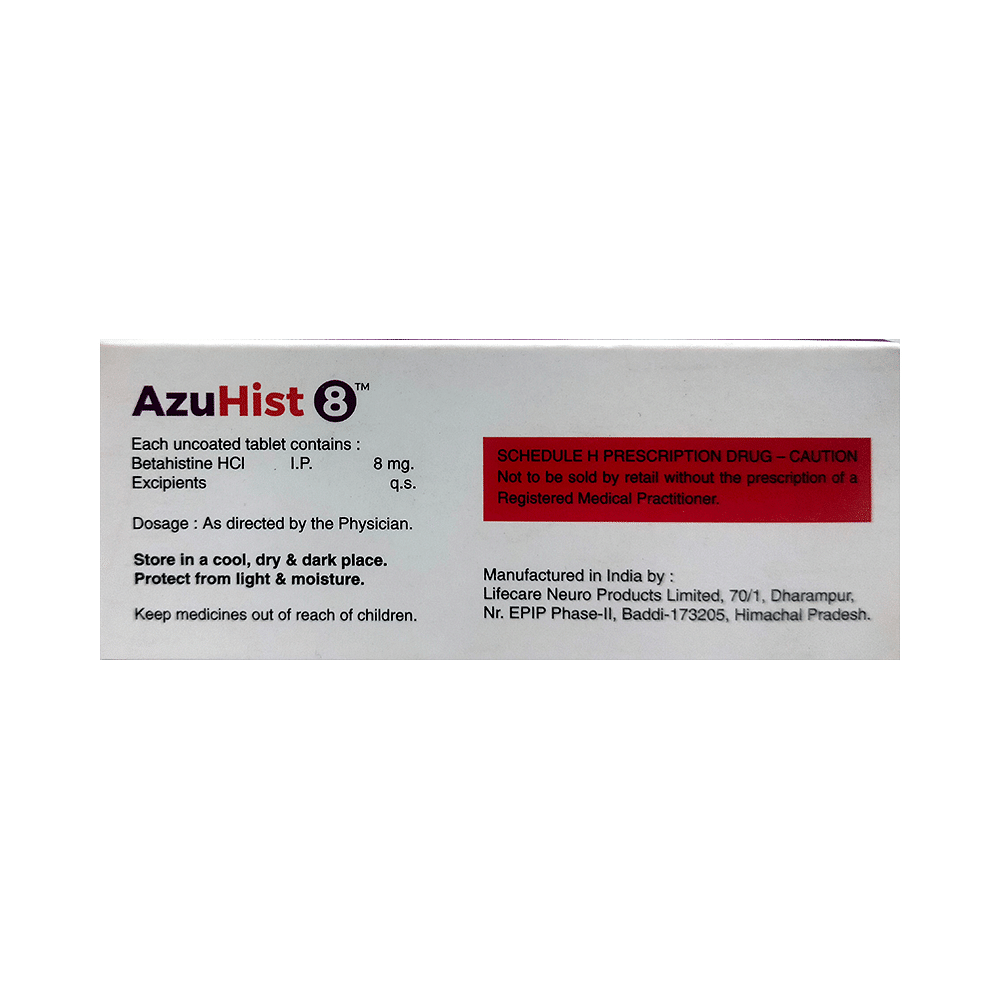
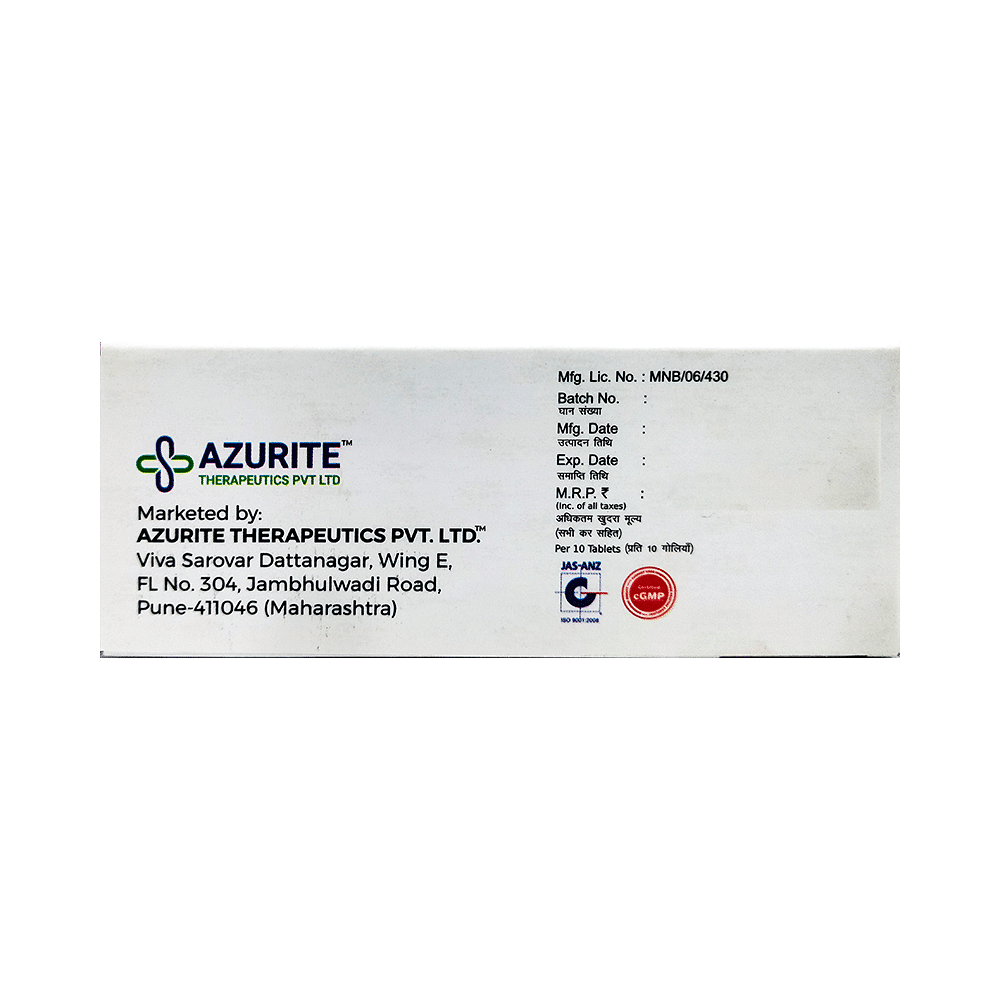
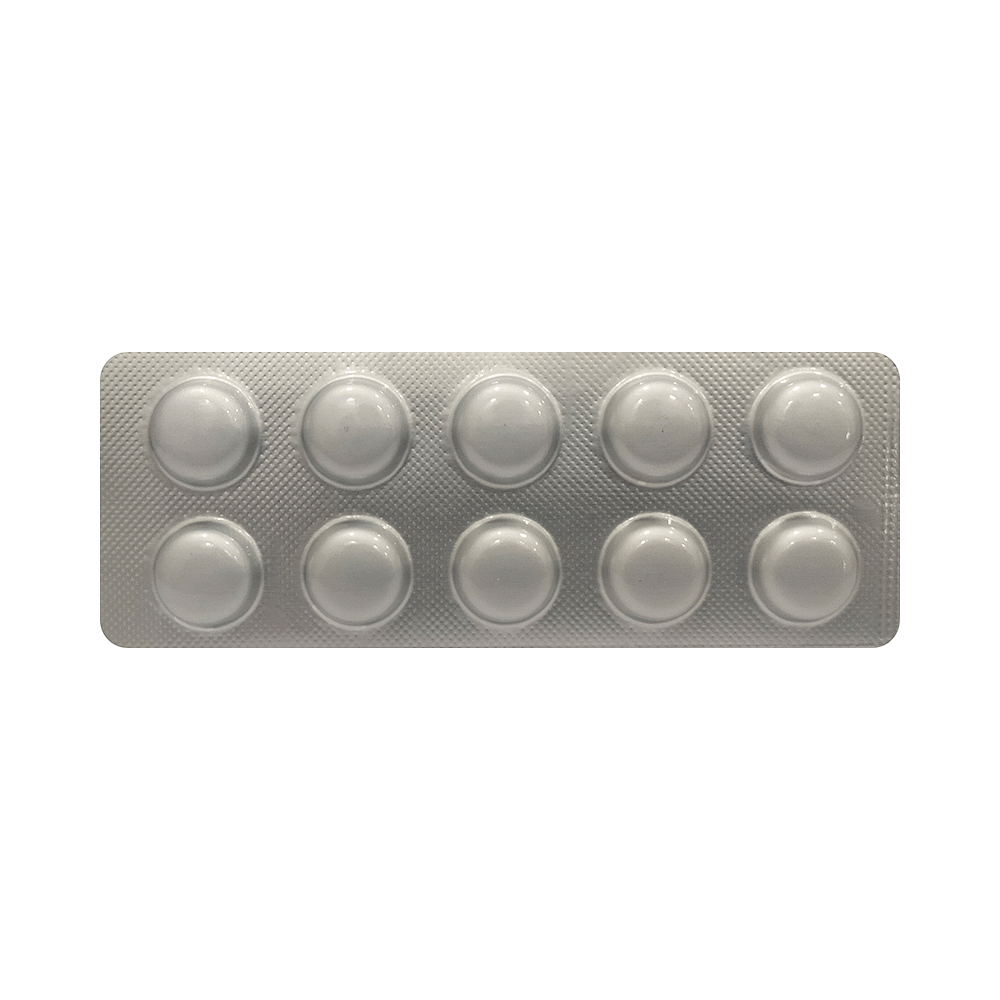
Azuhist 8 Tablet
Manufacturer
Azurite Therapeutics Pvt.Ltd.
Salt Composition
Betahistine (8mg)
Key Information
Short Description
Azuhist 8 Tablet is used to prevent and treat a disorder of the inner ear known as Ménière’s disease, which includes symptoms such as dizziness (vertigo), ringing in the ears (tinnitus), and loss of hearing, probably caused by fluid in the ear.
Dosage Form
Tablet
Introduction
Azuhist 8 Tablet should be swallowed whole with water and taken at the same time(s) each day to get the most benefit. Your doctor will decide what is the correct dose to relieve your symptoms and how often you need to take it. You may need to take this medicine for several months and you should take it for as long as prescribed by your doctor even if you start feeling better. The most common side effects include headache, feeling sick, and indigestion (dyspepsia). You may also get stomach pain and bloating. Taking the medicine with food can help reduce stomach problems. Before taking this medicine, you should talk to your doctor if you have a stomach ulcer, asthma, or high or low blood pressure. You must also tell him/her what other medicines you are taking to make sure you are safe. Also speak to your doctor if you are pregnant, trying to become pregnant, or breastfeeding.
Directions for Use
Take this medicine in the dose and duration as advised by your doctor. Swallow it as a whole. Do not chew, crush, or break it. Azuhist 8 Tablet may be taken with or without food but it is better to take it at a fixed time.
Safety Information
Side Effects
Headache Feeling sick Indigestion (dyspepsia) Stomach pain Bloating
Alcohol Warning
Consuming alcohol with Azuhist 8 Tablet does not cause any harmful side effects.
Breastfeeding Warning
Azuhist 8 Tablet is probably unsafe to use during breastfeeding. Limited human data suggests that the drug may pass into the breastmilk and harm the baby.
Pregnancy Warning
Azuhist 8 Tablet may be unsafe to use during pregnancy. Although there are limited studies in humans, animal studies have shown harmful effects on the developing baby. Your doctor will weigh the benefits and any potential risks before prescribing it to you. Please consult your doctor.
Interacting Medicines
Astemizole Azelastine Buclizine Cetirizine
How it works
Azuhist 8 Tablet is a histamine analog. It works by improving the blood flow in the inner ear which reduces the pressure of excess fluid there. Excess fluid can send signals to the brain causing nausea, dizziness or spinning sensations (symptoms of Ménière's disease). Azuhist 8 Tablet additionally dampens down the nerve signals sent from the inner ear to the brain relieving the symptoms of Ménière's disease.
Quick Tips
You have been prescribed Azuhist 8 Tablet to relieve vertigo (dizziness), hearing problems, and tinnitus (noise in the ear) associated with Ménière's disease It can only decrease the number and severity of attacks but may not completely stop them Taking it with food can help reduce stomach problems Take it at the same time each day to maintain a steady amount of the medicine in your body Inform your doctor if you have a history of stomach ulcer, asthma, or low blood pressure Inform your doctor if you are pregnant, planning pregnancy, or breastfeeding Do not stop taking the medicine suddenly without talking to your doctor first
Related Medicines
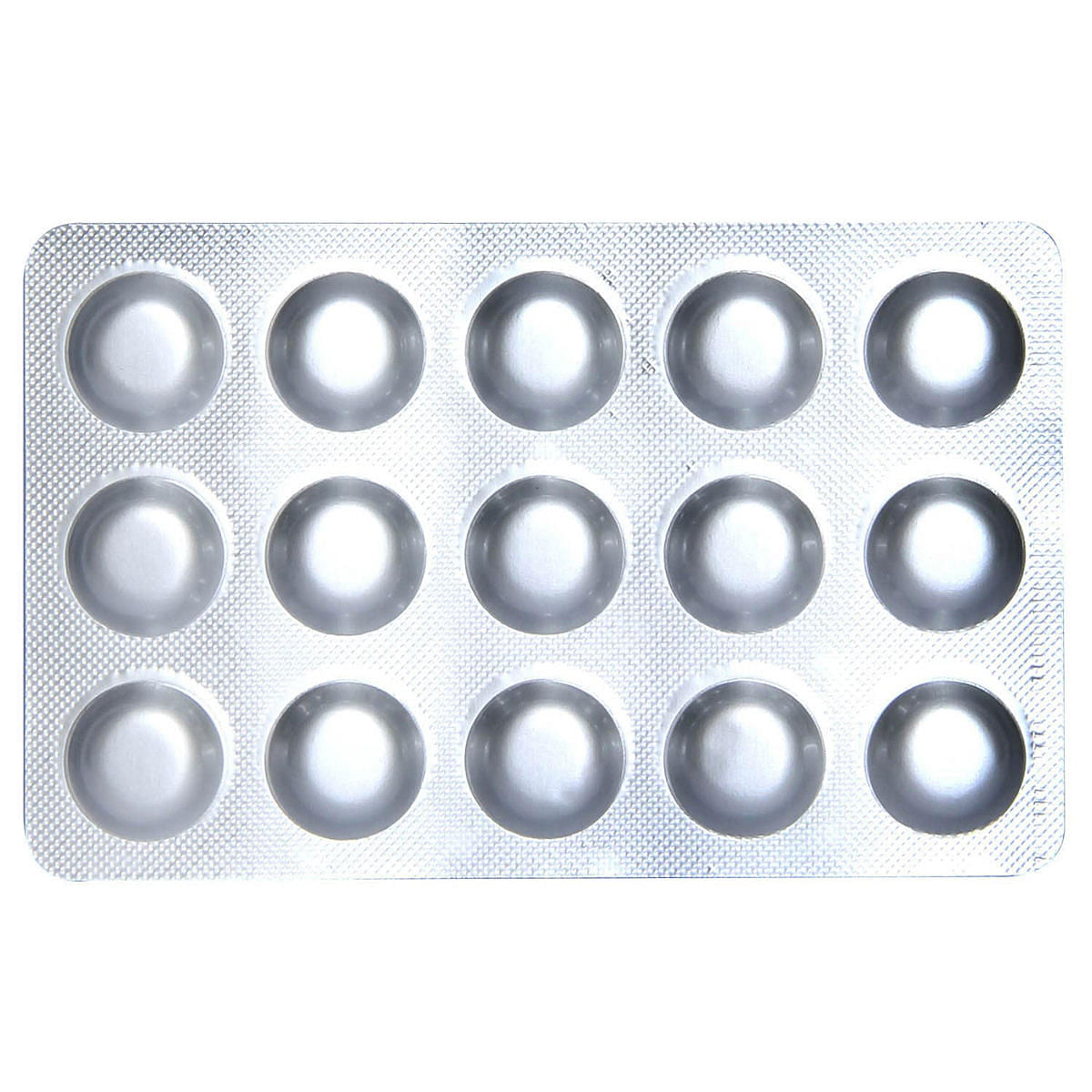
Vertin 8 Tablet

Betavert Tablet

Bet 8 Tablet

Nomtin 8mg Tablet

Tevert 8mg Tablet

Denhist 8mg Tablet
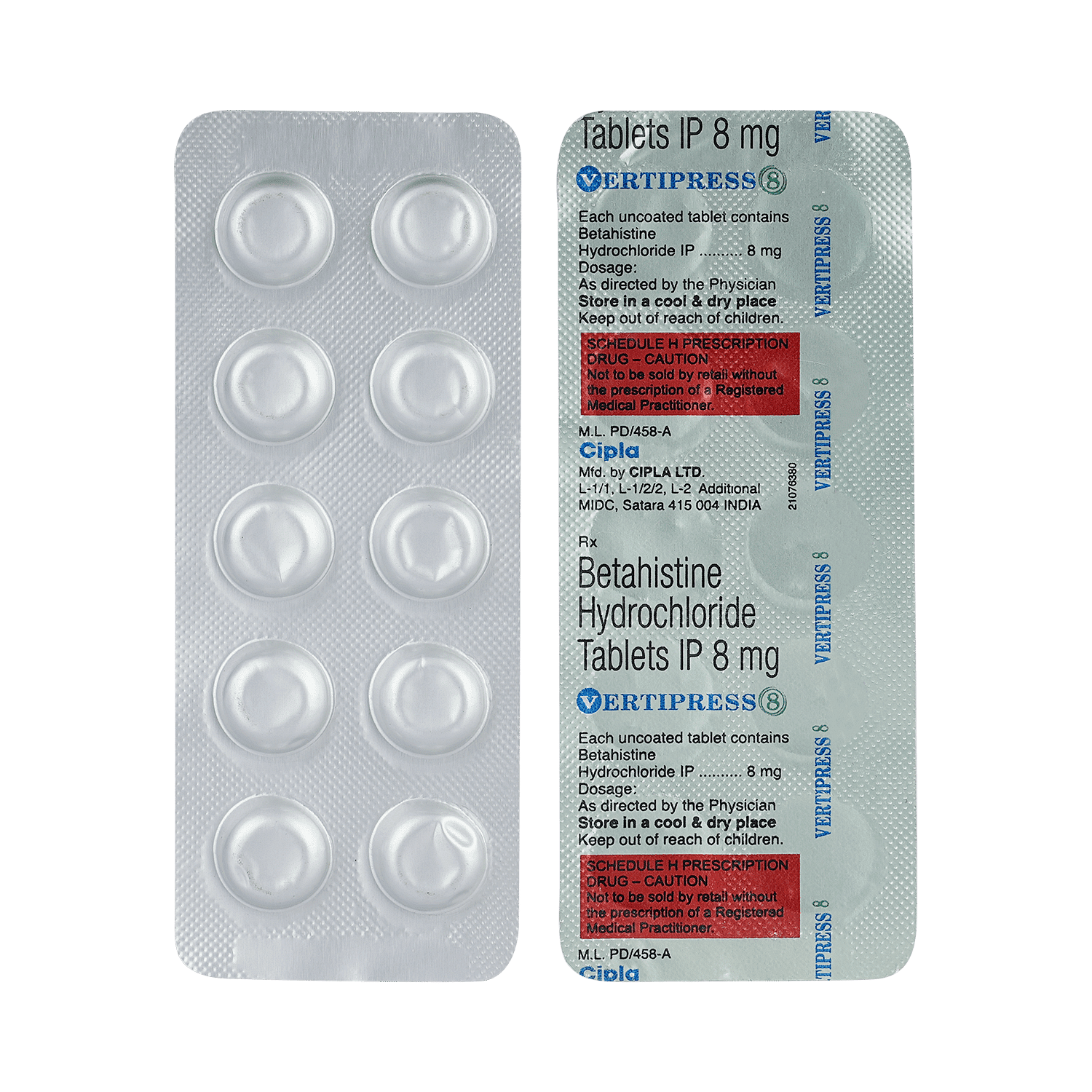
Vertipress 8 Tablet

Vertico 8mg Tablet

Veze 8mg Tablet

Bisver 8 Tablet
Frequently asked questions
What is Meniere's disease? Does it go away?
Meniere's disease is a disorder affecting the balance and hearing organs in the inner ear. Symptoms include vertigo (dizziness), fluctuations in hearing, tinnitus (ringing in the ears), and ear pressure. Dizziness can also lead to nausea and vomiting. While Meniere's disease cannot be cured, treatment options exist to manage symptoms effectively and improve quality of life. Open communication with a healthcare professional is crucial for determining an optimal treatment strategy tailored to individual needs.
Is Azuhist 8 Tablet effective?
Azuhist 8 Tablet may be effective if used as prescribed by your doctor, taking the full course of medication as directed. Do not stop using Azuhist 8 Tablet even if symptoms improve; ceasing treatment prematurely may lead to a return or worsening of symptoms. Consult your healthcare professional for guidance on proper dosage and duration of treatment.
What are the triggers for Meniere's disease?
Several factors can trigger Meniere's disease, including stress, overwork, fatigue, emotional distress, additional illnesses, pressure changes. Certain foods like dairy products, caffeine, alcohol, and high-sodium food may also increase symptoms. A low-salt diet (less than 2 grams per day) may help manage vertigo related to Meniere's disease.
What if I forget to take a dose of Azuhist 8 Tablet?
If you miss a dose of Azuhist 8 Tablet, take it as soon as possible. However, if the next dose is due shortly, skip the missed dosage and resume the scheduled time.
Is stress a reason for vertigo?
Mental stress can trigger or worsen vertigo symptoms. However, it does not directly cause vertigo on its own. Other factors like sudden drops in blood pressure or dehydration can also lead to vertigo. It is important to note that sometimes, vertigo may be a symptom of other disorders such as multiple sclerosis or those resulting from head trauma.
What are the causes of vertigo?
Vertigo is often triggered by sudden changes in blood pressure or dehydration. Rapid shifts between sitting and lying positions can also lead to lightheadedness, which may feel like vertigo. Other potential causes of vertigo include motion sickness, certain medications, inner ear problems (such as Meniere's disease or acoustic neuroma). It's important to remember that vertigo can sometimes be a symptom of other underlying medical conditions.
How long should Azuhist 8 Tablet be taken?
The duration of treatment with Azuhist 8 Tablet varies between patients. Some individuals may experience rapid improvements, while others may need time to see results. It is crucial to follow your doctor's instructions and take the medication regularly. If you have questions or concerns about your treatment plan, consult with your healthcare professional for personalized guidance.
What are the common side effects of Azuhist 8 Tablet?
Azuhist 8 Tablet can cause mild gastrointestinal problems like vomiting, stomach pain, abdominal distension (swollen abdomen), and bloating. It may be helpful to take Azuhist 8 tablet with food to potentially reduce the occurrence of these side effects. However, it can slightly decrease the effectiveness of Azuhist 8 tablet when taken with food.
Is Azuhist 8 Tablet effective?
Azuhist 8 Tablet is effective if used as prescribed by your doctor, taking the full course of medication as directed. Do not stop using Azuhist 8 Tablet even if symptoms improve; ceasing treatment prematurely may lead to a return or worsening of symptoms.
What if I forget to take a dose of Azuhist 8 Tablet?
If you miss a dose of Azuhist 8 Tablet, take it as soon as possible. However, if the next dose is due shortly, skip the missed dosage and resume the scheduled time.
How long should Azuhist 8 Tablet be taken?
The duration of treatment with Azuhist 8 Tablet varies between patients. Some individuals may experience rapid improvements, while others may need time to see results. It is crucial to follow your doctor's instructions and take the medication regularly. If you have questions or concerns about your treatment plan, consult with your healthcare professional for personalized guidance.


